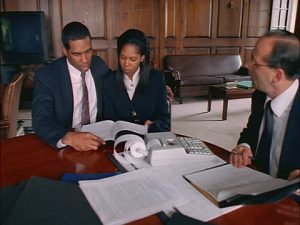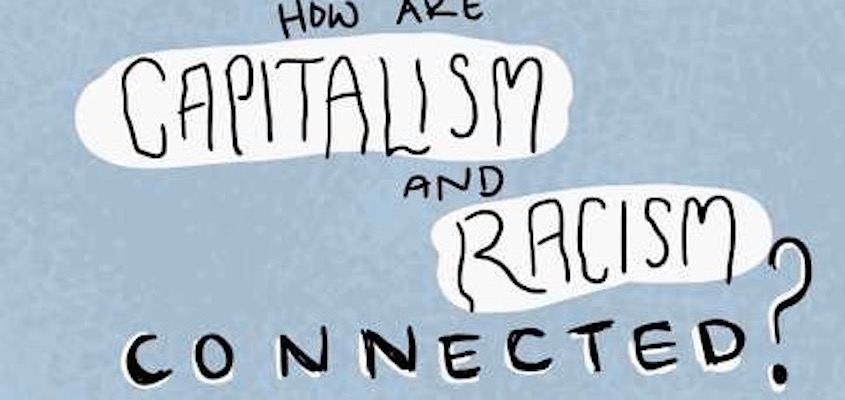(ThyBlackMan.com) They say that justice is blind. But as a senior legal analyst, I tend to believe that means justice refuses to see how she disproportionately damages African Americans. I am not an attorney but I share this article for information purposes only and based on my First Amendment right. None of us should have to be an attorney to know our rights. That is our personal responsibility and if we do not know our rights or the laws that regulate our lives, we will be at the mercy of courts and attorneys.
Clearly what they call justice is not impartial. Clearly the judicial system has racism embedded at its very core. And like any other profession, there are very bad participants – from judges to prosecutors to defense attorneys that “sell you down the river” quicker than you can blink an eye. In many cases, the slave auction block of the past has turned into the courtroom processing center of today and the plantation has turned into the prison for African Americans.
There are good and bad attorneys but justice and the best representation seem to have very high price tags – costs that most African Americans cannot afford. Your ability to pay can thus impact the “justice” you receive. Your bank account can make all the difference between getting probation, spending time in jail and losing everything you own or simply walking away free and clear. And far too many African Americans have been the victims of attorneys who never completely worked on their behalf – though they appeared to do so. And yes many attorneys know this is true.
have been the victims of attorneys who never completely worked on their behalf – though they appeared to do so. And yes many attorneys know this is true.
So what can you do? You have to interview a potential lawyer just like he/she interviews you when deciding whether or not to take your case. You have to ask about his/her experience in cases like yours, whether civil or criminal. You have to inquire about his/her success rates, how long he/she has been in practice and if he/she regularly practices in the county where your case is being tried. Does he or she know the judges? Is he or she good at making deals?
Ask the attorney up front why you should use him and be direct. Ask about fees and payment plans. Then go and do your research on the attorney. The internet can be very helpful as you do your homework. Be careful of Legal Aid and know there are also other attorneys or nonprofit law firms who might even take your case at no charge (Pro Bono). I have seen it happen but you have to find them. They do exist. Once you hire an attorney, be honest, accurate and complete in what you share. also tell him or her what you would like the outcome to be.
Never leave your case solely up to your attorney. While you are not an attorney, you will have to do your research as well, especially into cases like yours, the judge’s track record, the prosecutor’s track record and your rights and defenses or options. If you do not do this research, you will not know whether the attorney is representing you well or not. And that is exactly how many attorneys get over on their clients – through the ignorance of their clients who won’t fact check them or do any research.
How do you do your research? Start with the internet. There are also law libraries at most state universities. There are consulting services like Legal Shield, a worthwhile minimal monthly investment. There is the BAR Association for your state. You may even want to visit the courtroom ahead of time and see your potential attorney in action. I strongly recommend that you pre-screen and know a good attorney or two BEFORE you need one, just as you should have a good doctor and a good mechanic.
There are in fact many attorneys who will never tell you all of your rights and never do all they could do for you. Why is this the case? Sometimes because a better defense cost more money. Sometimes because the attorney just isn’t any good – even if he/she has been practicing 20 years. Sometimes because he/she does not care what happens to you. Sometimes because it is unpopular for him or her to pull out all the stops, win your case and embarrass the court where he or she has to continue to practice. Sometimes because the attorney can get away with practicing “half-ass” representation because you do not know enough to hold him or her accountable. This is especially true for a great many public defenders. Sometimes the public defender is so flooded with cases that you are just a name on a file instead of being perceived as a person whose life or well being hangs in the balance. These are the sad facts and these are the reasons you have to choose an attorney wisely.
If you are the victim of a bad attorney, you do have options. You can fire the attorney and get another one. You can notify the court that you feel you are not receiving proper or adequate representation. You can file a complaint against that attorney with the BAR Association in your state. You can ask the law firm to assign another attorney and tell them your reasons why. You may even have the right to appeal your case based on the fact that you did not have adequate representation.
You need to know, whether your case is civil or criminal, African American attorneys and young lawyers with little experience do not get much respect from judges nor the judicial system. Go to youtube, look at the Atlanta Public Schools cheating scandal courtroom footage and you will see what I mean. Attorneys who are from bigger law firms, older attorneys (60 and over) and well connected attorneys not only get more respect, but they can also get more done on your behalf. But do not pick an attorney just because of his or her age without looking at all the other areas I have mentioned in this article.
Picking the right attorney can make all the difference in the outcome of your case, whether you are the plaintiff, the respondent or the defendant. In small claims cases and magistrate court, if you are articulate and willing to do the research, you might even want to represent yourself (Pro Se). I have represented myself several times and never lost, but that’s because I knew the law and the guidelines the court had to follow. Judges and courts must follow the law, not our opinions, likes, dislikes, preferences or what we think is unfair. Representing yourself (Pro Se) is always tricky but sometimes both necessary and beneficial – and you have that right.
I once represented myself in a case where the original court order stated what had to be done. Even though I was in front of a different judge in a different court, I knew the judge was likely to follow the previous court order. I also knew that most judges would unless there were major changes in circumstances that gave them cause not to. Did they have me jump through hoops? Yes, I had to file paperwork with the clerk’s office and visit the courthouse several times. But I endured and I won.
Ironically, in this civil case, an attorney was going to charge me $2500 for what I was able to do myself, including filing motions with the court. Representing yourself is often discouraged by attorneys in all type cases because they won’t make any money when you do. But in some cases you are better off representing yourself, if you know the laws that govern your case, if you will do the research, if you can articulate your case and if you are prepared.
Some judges are more tolerant when you are representing yourself and others are just the opposite because they hate citizens cutting their fellow attorneys out of making money in the process. Either way, good luck because in the American judicial system you will need it.
Staff Writer; Marque-Anthony




















Leave a Reply